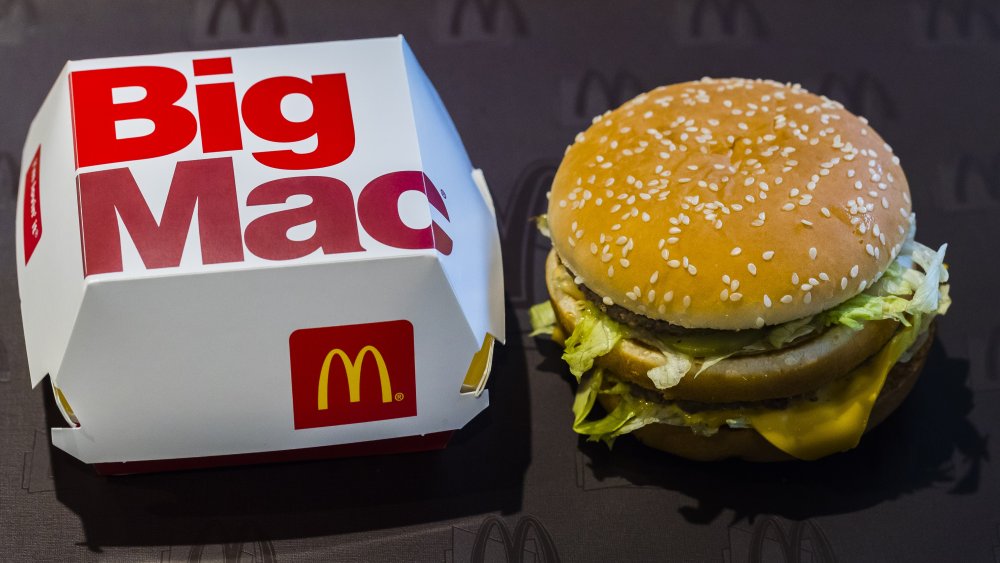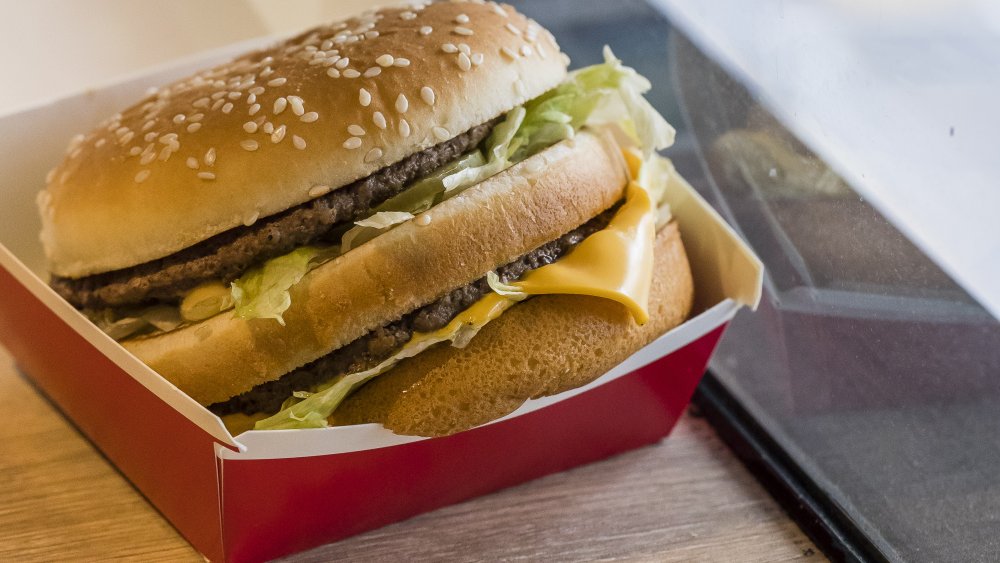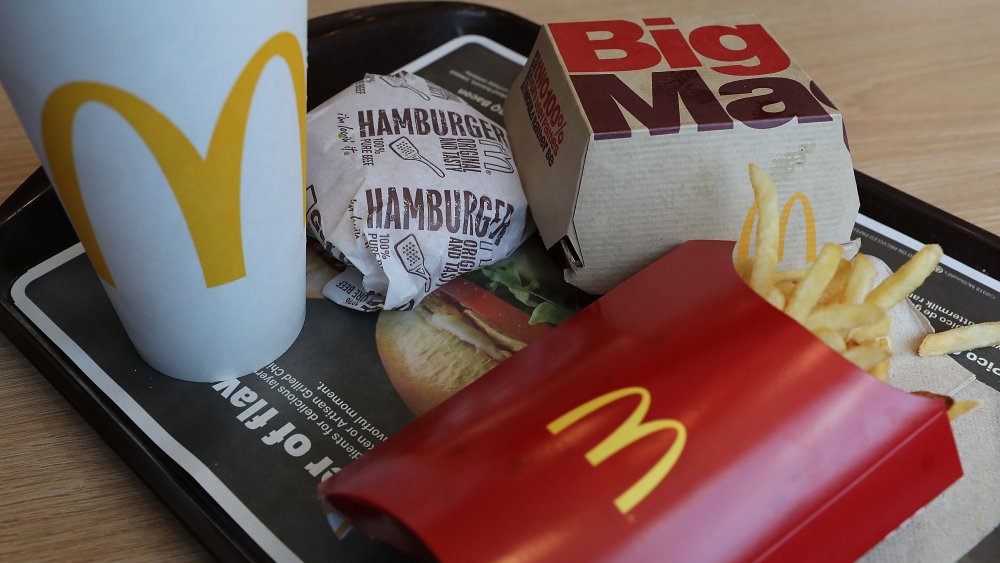Nutritionist Breaks Down Everything Wrong With The Big Mac
Hold the presses, we've got breaking news! McDonald's Big Macs are actually not all that healthy! Shocking, isn't it? And here we all thought they were the next best thing to açaí bowls, while all along, it turns out they're just one more diet-busting, artery-clogging fast-food burger.
Okay, so maybe we've all known that super-sized burgers aren't our best bet nutrition-wise since, oh, about the same time that four out of five doctors stopped recommending that everyone smoke a pack of cigarettes a day to soothe their frazzled nerves. To get all the details about exactly what makes the Big Mac so unhealthy, along with a few reasons why it may not be as bad as all that (at least if you make a few tweaks to your order), we talked to nutritionist Serena Poon, founder and CEO of wellness website Serena Loves LLC and superfood supplement company Just Add Water.
What's wrong with the Big Mac?
So what is Ms. Poon's take on one of America's best-loved burgers? Well, first the basics: the Big Mac (standard-sized, not one of the new variant versions) has 550 calories, 30 grams of fat, 11 grams of saturated fat, 45 grams of carbs, and 1,010 mg sodium. As Poon says, the nutritional information that we need to "pay mindful attention to" is the saturated fat content (about 53% of the recommended daily value based on a 2,000 calorie diet) and the sodium (about 44% of the recommended daily value).
Poon warns that if you eat Big Macs on a regular basis, there's cause for concern because "a diet high in saturated fat and sodium can lead to high cholesterol and high blood pressure, increasing the risk for developing heart disease or stroke." She also cautions that "the bun, sauce, cheese, and pickles in a Big Mac contain processed ingredients and preservatives that can wreak havoc on your gut health, which is the control center of overall well-being."
How to enjoy a Big Mac without suffering the consequences
It's not all bad news regarding the Big Mac, though. These burgers do contain 25% of your recommended daily iron, and they could be considered a pretty decent source of protein, as well. The best way to consume a Big Mac, according to Poon? She advises ordering your burger without cheese or special sauce, and maybe ditching the bun in favor of a lettuce wrap.
Of course, if you are going to do all that, you might as well order a plain burger, as that will be much cheaper. But will that even satisfy your craving? You may decide it's worthwhile to go Big Mac or go home and get the whole deal — special sauce, lettuce, cheese, pickles, onions, sesame seed bun, and all, large fries on the side, and, what the heck, maybe even a McFlurry! Call it a cheat meal with zero guilt, and get back to your regularly scheduled balanced diet tomorrow. Even clean-eating advocate Poon advises that there's no point in worrying about a once-in-a-blue-moon Big Mac, saying: "If a Big Mac is an occasional choice in a diet that is otherwise robust in plant foods and wholesome, unprocessed carbs and proteins, the saturated fat and sodium from it is really nothing to be too concerned about."


